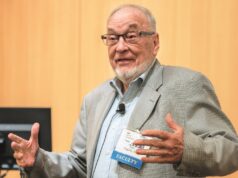
Three studies presented at the 2014 European Association for Cardio-Thoracic Surgery annual meeting (11–15 October, Milan, Italy) showed, respectively, that Sorin’s sutureless Perceval aortic valve is associated with excellent haemodynamic results at 30 days, no valve migration at five years, and a lower use of resources than traditional valves. Positive data for the company’s Freedom Solo stentless aortic valve were also presented at the conference.
A Sorin press release reports that the CAVALIER multicentre European trial, which was designed to evaluate the safety and effectiveness of the Perceval valve in a large population requiring aortic valve replacement with or without concomitant coronary bypass grafting, enrolled 658 patients (including from 25 selected European centres). It adds that the 30-day results, which were presented at the EACTS meeting by François Laborde (Institut Mutualiste Montsouris, Paris, France),demonstrated the safety of Perceval through “excellent” haemodynamic, low complication rates, and ease of implant with a reproducible technique in both sternotomy and the less invasive approach.
According to the press release, another study presented by Malakh Shrestha (MHH, Hannover, Germany) at the meeting reviewed five-year outcomes—using data from a European multicentre experience—of the sutureless Perceval valve. This study, press release reports, indicated that the value was associated with “excellent and stable results” at five years follow-up. Also, no valve migrations, structural valve degeneration or valve thromboses were observed in the “largest patient cohorts ever implanted” with sutureless valves. Additionally, the rate of 30-day mortality was low (1.9%) as were the rates of early paravalvular leak (1.4%) and early stroke (1.6%). The press release states that “another noteworthy clinical benefit” was the “extremely low” endocarditis rate (0.3%).
Shrestha says: “Even in this elderly patient cohort with 40% of patients aged over 80 years old, early and late mortality were very low. The sutureless technique is a promising alternative to stented biological aortic valve replacement.”
The third study on Perceval presented—by Bart Meuris (University Hospitals of Leuven, Belgium)— at EACTS was a retrospective matched case-control study that compared economic data for Perceval sutureless valve with that of a traditional stented valve (Perimount, Carpentier-Edwards). Perceval was associated with a lower use of resources, including significantly shorter intensive care unit and hospital stays, significantly shorter intubation time and reduced use of different blood products (packed cells, plasma and platelets). Additionally, the mean total cost of the Perceval group patients compared with Perimount, net of valve costs, was reduced by 27% (ie. a mean reduction of € 8,176 per case). These cost savings were mainly driven by reduced hospital stay costs and significantly lower procedural costs. In summary, patients with Perceval recovered faster than with Perimount, which led to increased hospital savings overall.
Meuris comments: “The adoption of sutureless technology is growing day by day. This is a clear example of how innovation can improve patient outcomes and provide important savings to the hospital compared to traditional valves”.
Freedom Solo
Also at EACTS, Sorin announced the results of a European and North American cohort study of the company’s Freedom Solo stentless valve. A company press release reports that study evaluated the safety and effectiveness of the valve in a large population (including European, Canadian and US. Patients) requiring aortic valve replacement with or without concomitant cardiac procedures. It adds that the study showed successful clinical results with the valve, with low early and late mortality up to three years after surgery. Despite the increased risk profile and advanced age of the patient population, the 30-day mortality rate was 1.7%, overall survival was 82.6% and freedom from valve-related death was 95.5% at three years.
Herko Grubitzsch (Charité – Universitätsmedizin in Berlin, Germany), who was one of the main investigators of the European arm of the Freedom Solo study, says: “This study confirms the safety and effectiveness of this unique stentless pericardial aortic valve whose design allows simple implantation and facilitates excellent hemodynamic performance in the biggest patient population presented,”










